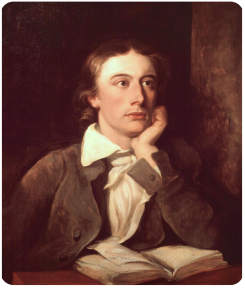Tamilnadu State Board New Syllabus Samacheer Kalvi 8th English Guide Pdf Poem 4 A Thing of Beauty Text Book Back Questions and Answers, Summary, Notes.
Tamilnadu Samacheer Kalvi 8th English Solutions Poem 4 A Thing of Beauty
8th English Guide A Thing of Beauty Text Book Back Questions and Answers
Warm-Up (Text Book Page No. 108)
1. Do you admire the beauty of nature, animals, people, places, or things? Discuss with your partner. (Text Book Page No. 108)
Answer:
Yes, we all admire the beauty of nature, animals, places, and things. Nature provides us trees. Trees provide us oxygen, shade, rainfall. Medicinal plants and herbs are helpful in the medical field. We admire animals. We have pet dogs and pet cats. They are lovely and beautiful. Places like Kuttrallam are very pleasant to visit. Dolls, toys, and play materials are very interesting to the children.
8th English Guide A Thing of Beauty Textual Exercise Questions and Answers
B. Choose the correct answers. (Text Book Page No. 110)
1. According to the poet, a thing of beauty is …………….
a) a joy forever
b) a pain forever
c) suffering forever
d) neglected
Answer:
a) a joy forever
![]()
2. Beautiful things never “pass into nothingness ” means that they ……………..
a) Never increases
b) create unpleasantness between friends
c) never fade away
d) always bring unhappiness
Answer:
c) never fade away
3. “Will keep a bower quiet for us” means ……………..
a) Will give us peace and calm
b) will stop unpleasant sound
c) make our beds fit sleep
d) reduces noise
Answer:
a) will give up the peace and calm
4. Of all the unhealthy means ……………..
a) Pain
b) neglect
c) suffering
d) ill-health
Answer:
d) ill-health
![]()
5.The sun moon, trees, old and young are the things that ……………..
a) Depress us
b) remove the pall of gloom from our lives
c) makes us laugh
d) give us oxygen
Answer:
d) give us oxygen
C. Answer the following. (Text Book Page. 84)
1. How is a thing of beauty joy forever?
Answer:
A thing of beauty is a joy forever because it is a source of endless joy and its eternal beauty never fades away.
2. Why do we suffer?
Answer:
We suffer because some shape of beauty moves away from the pall From our dark spirits.
3. According to the poet, mention the evil things we possess?
Answer:
The evil things we possess are hatred, greed, and negativity.
8th English Guide A Thing of Beauty Additional Appreciation Questions and Answers
1. Mention the natural objects mentioned in the poem.
Answer:
The sun, the moon, trees, sheep, flowers, clear rills, forest, and fountain are the natural objects mentioned in the poem.
2. Write down the name of the poet?
Answer:
John Keats, a British romantic poet was the author of this poem.
![]()
3. Write down the name of the poem from which the except has been taken.
Answer:
Endymion is the poem from which this excerpt has been taken.
4. Who was Endymion?
Answer:
Endymion was the name of a young shepherd.
5. Why did Endymion wander?
Answer:
Endymion had a vision of cynthia, the Moon goddess. He wanted to seek her out. So he wandered away.
6. What does the fountain pour?
Answer:
The fountain pours the immortal drink.
7. Where does the immortal drink come from?
Answer:
The immortal drink comes from heaven.
8. What do you know about the fountain?
Answer:
The fountain is an endless fountain.
![]()
9. What kind of sleep is provided by the thing of beauty?
Answer:
A thing of beauty provides us a sleep full of sweet dreams, health and quiet breathing.
10. What is the effect of this ‘immortal drink’ on us?
Answer:
The immortal drink gives us immense joy, a joy that is everlasting, one that will never come to an end.
11. Explain “Some shape of beauty.”
Answer:
Beauty is an abstract idea and has no specific shape. The poet here means beauty in some form or some beautiful object which pleases us.
A Thing of Beauty Summary in English
The poem is based on a Greek legend, in which Endymion, a beautiful young shepherd and poet who lived cm Mount Latmos, had a vision of Cynthia, the Moon Goddess. The enchanted youth resolved to seek her out and so wandered away through the forest and down under the sea.
A Thing of Beauty Summary in Tamil
இந்தக் கவிதை அழகின் வல்லமையைக் கூறுகிறது. அழகு நிரந்தரமானது. நமக்கு ஆரோக்கியத்தையும் மகிழ்வையும் அளிக்கிறது. தீய உணர்வுகளை விரட்டுகிறது. மலர்கள், ஓடைகள், காடுகள், நீருற்றுக்கள், மலைகள் யாவும் நமக்கு சாகாத வரம் தரும் ஜீவ நீரை சொர்க்கத்திலிருந்து வழங்குகிறது.
A Thing of Beauty About the Author in English

John Keats (1795 – 1821) was a British Romantic poet. Although trained to be a surgeon, Keats decided to devote himself wholly to poetry. Keats’ secret, his power to sway and delight the readers, lies primarily in his gift for perceiving the world and living his moods and aspirations in terms of language. A thing of beauty is an excerpt from his poem ‘Endymion: A Poetic Romance’. The poem is based on a Greek legend, in which Endymion, a beautiful young shepherd, and poet who lived on Mount Latmos, had a vision of Cynthia, the Moon Goddess. The enchanted youth resolved to seek her out and so wandered away through the forest and down
under the sea.
A Thing of Beauty About the Author in Tamil
ஜான் கீட்ஸ் (1795 – 1821) வரை வாழ்ந்த பிரிட்டிஷ் ரொமான்டிக் காலப்புலவர். மருத்துவராக இருந்த போதிலும் தன்னை கவிதைக்கு அர்ப்பணித்தார். கீட்ஸின் ரகசியம், என்னவென்றால், நேயர்களை மகிழ்விப்பார். தன் மொழிவளத்தால் தன் மனநிலை ஆசைகள் இவற்றை நேயர்களும் கண்டு மகிழுமாறு செய்வார். ‘என்டிமியான்’ என்ற புத்தகத்தில் உள்ள ஒரு சிறு பகுதி இங்கு தரப்பட்டுள்ளது. இது கிரேக்க புராணத்தை தழுவியது. இந்தக் கவிதை ஒரு கிரேக்க புராணத்தை அடிப்படையாகக் கொண்டது. அதில் லாட்மோஸ் என்ற மலையில் வாழ்ந்த ஓர் அழகான இளம் மேய்ப்பரும் கவிஞருமான எண்டிமியான், சிந்தியா என்னும் சந்திர தேவி மீது பார்வை கொண்டிருந்தார். மந்திரித்த இளைஞர்கள் அவளைத் தேடத் தீர்மானித்தார்கள். அதனால் காடு வழியாகவும் கடலுக்கு அடியிலும் அலைந்து திரிந்தார்கள்.